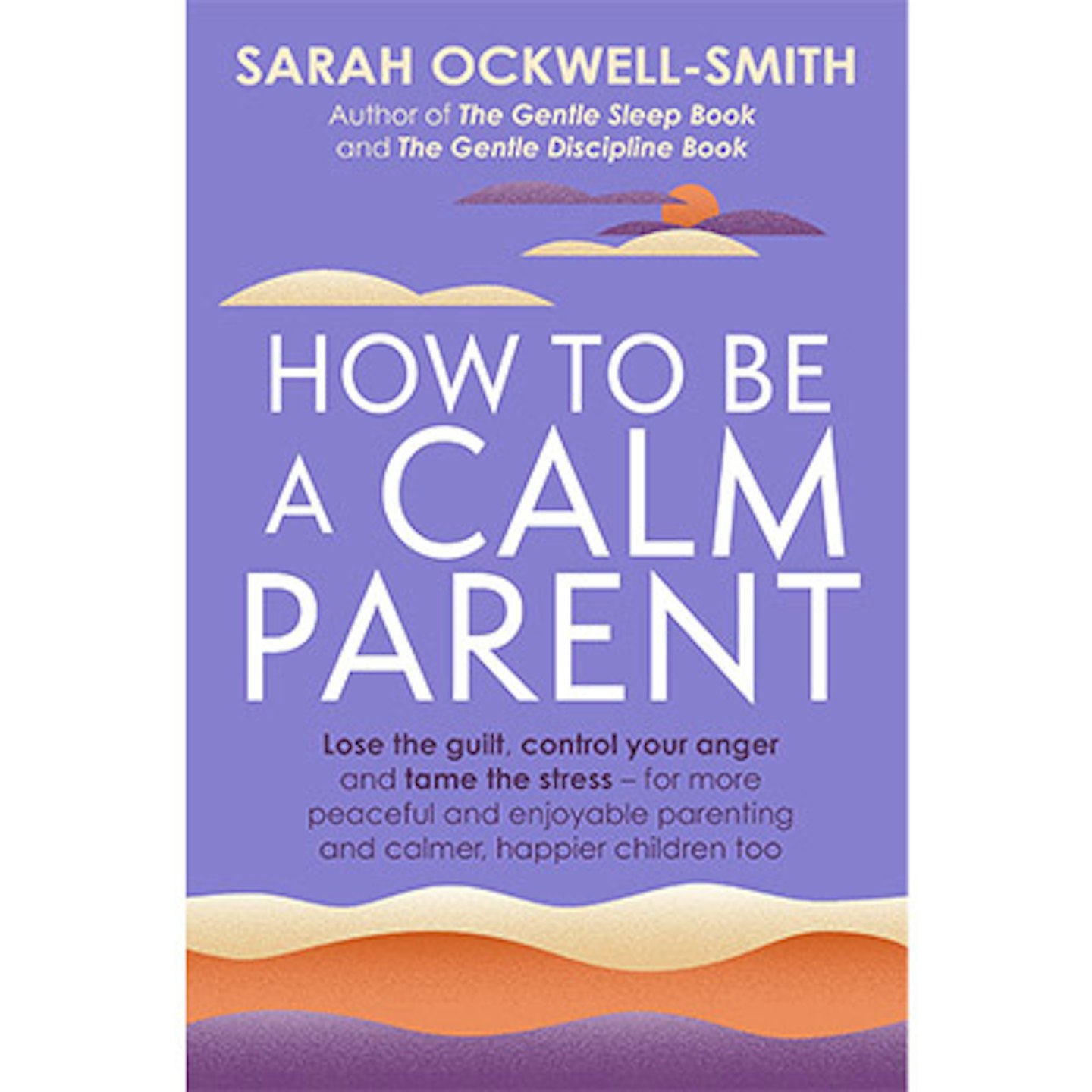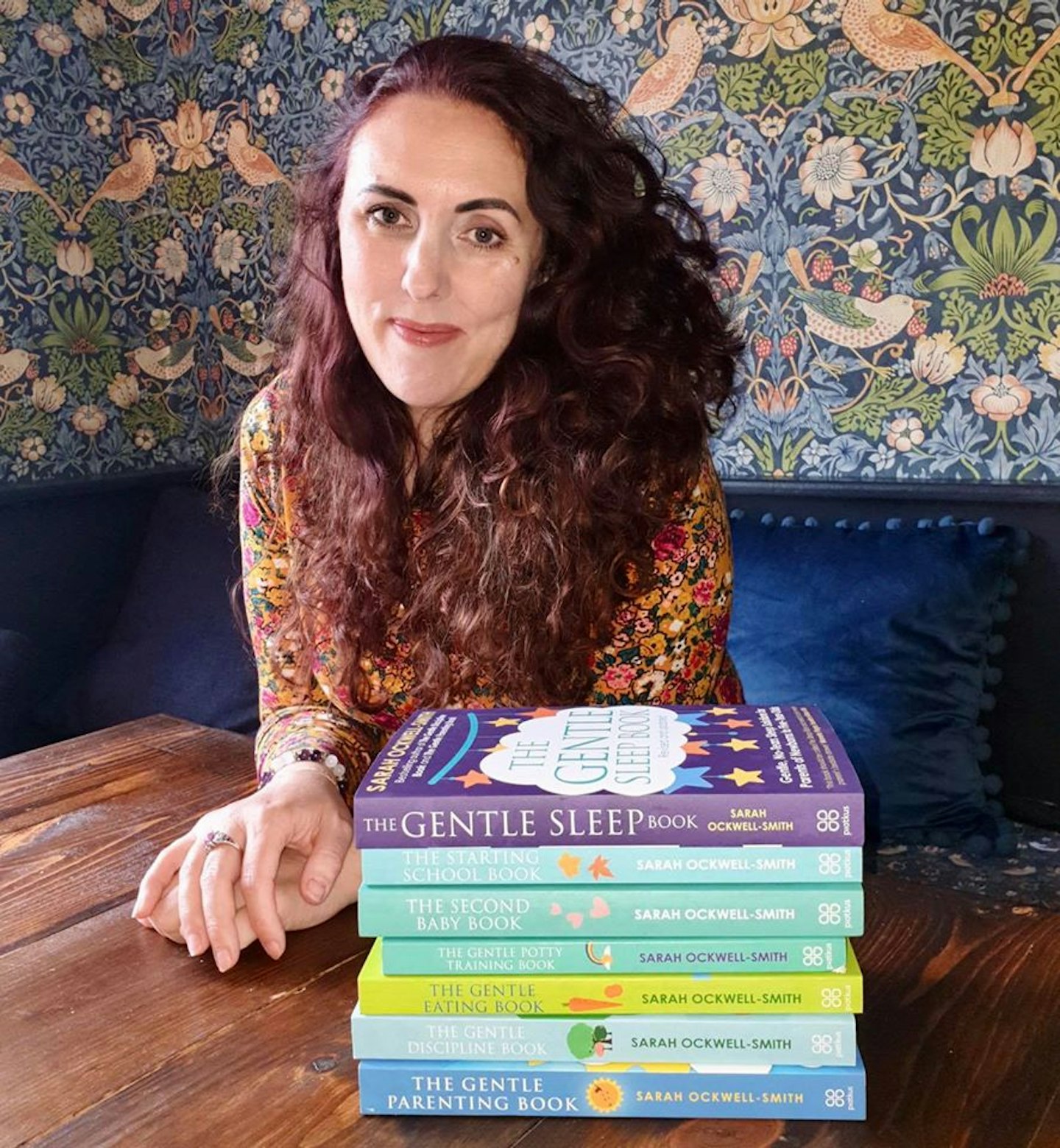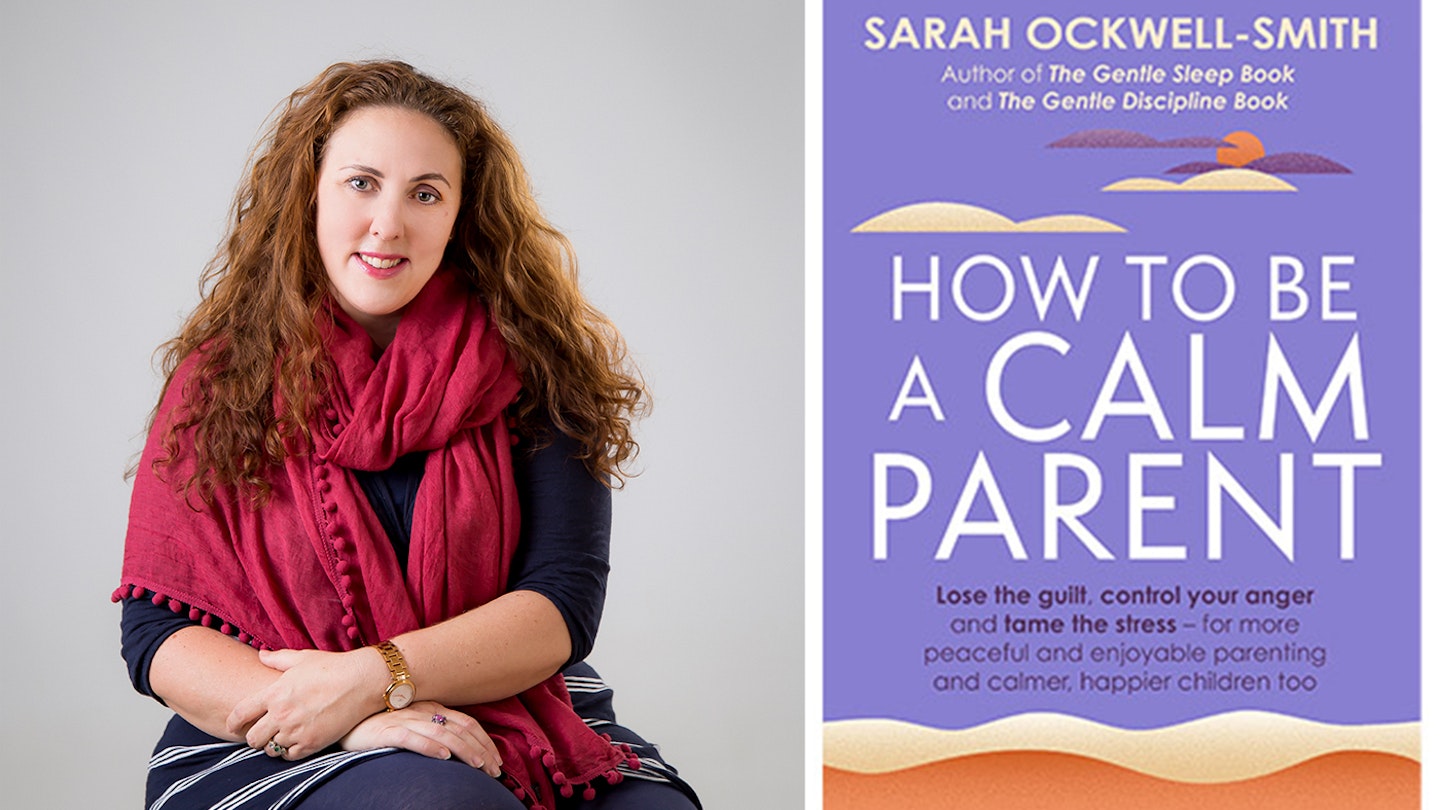First came Baby Calm, then Toddler Calm and now parenting expert Sarah Ockwell-Smith has released her 13th book, How to Be A Calm Parent. It aims to help parents or soon-to-be parents better understand their emotions to navigate how they can be a calmer to raise calmer, happier children.
“I don't think it even really matters if you have children because it will still apply,” she says, “but it's written from the point of view that when you have children, as this really tests your patience. Every single parent will lose their temper and yell and shout, and you're then filled with this all consuming guilt that you've ruined your children or that you're failing. I tried to make it like a big hug in a book to say to parents you're not alone, everybody's like this, you won't damage your children and, actually, there are things you can do to be calmer, not just for your kids but for your sake, too, because I think we forget as parents that we also deserve to be happy.”
Unlike a lot of other self-help books currently out there that simply offer advice and may leave you feeling overwhelmed and more confused afterwards, How To Be A Calm Parent contains practical exercises to teach you how to manage your emotions better.

“I actually wanted to give parents some real tools that they can use to make a change,” Sarah tells us. “I'm so tired of self help books that say, ‘you need to work on your inner child, do the work and so forth’, but don't actually tell you how to do it. So, for each chapter I've made sure that there are actual exercises that you can do to make a difference.”
Sarah says she’d actually been asked to write this book for years, but despite being a ‘parenting expert’ she didn’t feel like she’d figured out how to be a calm parent herself, as like many others out there, she too struggled with anger outbursts, guilt and anxiety.
Then in 2019 she was diagnosed with cancer. The Covid lockdowns soon followed, and a busy Sarah, who would constantly push her own needs to the side now had nowhere to hide and had to face them head on. Learning how to be calmer wasn’t just important for her four children’s sake, but for her own too.
“It made me kind of analyse myself and understand myself a bit more and actually put into practice what I say. Although I don’t actually say much about myself in the book, it’s the process that I went through in my own head, so it kind of feels personal. I think this is partly why it's so nerve wracking because I guess this is what I believe we need to do to be calmer. It's a process that I went through and I hope it will resonate with other people.”
Working on yourself is one of the key messages Sarah employs throughout the book to becoming a calmer parent.
"Parenting isn't about what you say to your kids or any magic techniques you may employ with them. It's about who you are and how you tackle your own demons to ensure you don't pass them on to your children."
Sarah ockwell-smith - How to be a calm parent
“I think people get too hung up on employing a certain technique or using stock phrases when they're looking for parenting advice, but I think any issue always comes back to you and how you handle it. For instance, if your child is being rude, that will trigger you in some way and your response isn't a response to your child, it's a response based on how your parents would have treated you if you'd said or done the same thing. So much of our parenting is unconscious, so it doesn't matter how much we're trying to implement certain advice, most of it is coming from how we were raised and what we experienced and for a lot of us that wasn't all positive. It's trying to understand where our responses are coming from, what they're all about and if they are serving us and our children, and if they're not, how can we understand it and change them.”
This isn’t to say the aim is that ‘we should be calm parents all the time’, as let's be honest, that would be the most unrealistic statement ever (parent or not). In fact, Sarah reassures that outbursts and messing up is hugely significant too.

“When we mess up it gives us an opportunity to make things right and apologise,” she says, “and if we didn’t, we wouldn't get that opportunity. If we were perfect parents it’s actually way more terrifying for our children, because then we'd raise people who think they need to be perfect and that they can't show their emotions or be authentic, which is worrying. The most important takeaway, is for parents to know that when you mess up, you can always repair it.”
So what sort of tips does Sarah share in the book to help people become a calmer parent?
“First, the acknowledgment that everybody messes up and that it's not you that has a problem, you're not abnormal, everybody's like this, you just don't realise it,” she says. “The next thing is, knowing that it's always possible to change. Change might not look like you think it does, so it's not a nice, easy upward trajectory, you'll still have days when everything goes wrong. But if you want to change, you can and you can become calmer. It’s hard work, but it is definitely possible.
"The behaviour that we really want to change about our child, is often a reflection of the behaviour that we need to change about ourselves."
Sarah Okwell-Smith
“And I think the acknowledgement that parenting is really bloody hard. In our society today, we’re basically the most unsupportive ever of parents, we don't support working parents, but we also don't support stay at home parents and that's without Covid thrown in. But we also have to acknowledge the really uncomfortable truth that if we are angry and shouty as parents, then we're going to raise kids who are angry and shouty. Very often, the behaviour that we really want to change about our child is actually a reflection of the behaviour that we need to change about ourselves, and the answer to most parenting issues starts with us. We need to change before we change our children.”
What's the key message then that she wants people to be able to take away from her book?
"That you're not alone. There's so much guilt and shame around losing your cool with your kids. I just want to take that away and help people to realise that you don't really have anything to be guilty or ashamed of. You're not the only one and you're actually doing a really good job in a really tough society. I think I'm shifting away from parenting advice and shifting more towards parenting support. I don't think you have to give people lots of advice to support them and, sometimes, I think actually less advice is more supportive and I think that's really what I'm aiming for."

We're giving away five copies of How To Be A Calm Parent over on our Instagram, click here to enter.
Popular articles to read next
Louise Pentland on her new book Mumlife, her childhood and managing screen time
